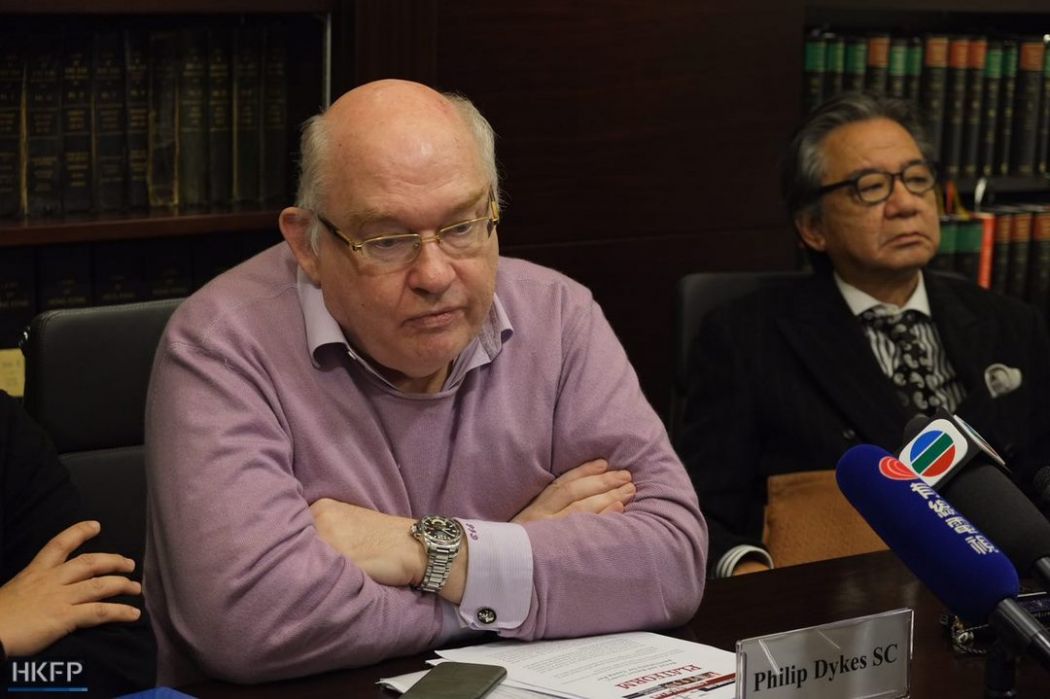Hong Kong Bar Association Chair Philip Dykes has called the power of China’s top legislature to interpret the Basic Law the “greatest threat to the rule of law in Hong Kong.”
In January, Dykes was elected head of the Bar Association, an influential professional organisation for barristers in Hong Kong, following a heated race against former chairperson Paul Lam.
At a Foreign Correspondents’ Club lunch on Monday, Dykes said that the interpretations – provided under Article 158 of the Basic Law – are made by a non-judicial body which is not accountable under Hong Kong law or to anyone in Hong Kong.

The Basic Law, Hong Kong’s mini-constitution, gives the Standing Committee of the National People’s Congress the power to issue a final and binding interpretation of the laws it contains.
Dykes said the Standing Committee is “able to choose the ‘preferred outcome’ because it is not a judicial body,” while courts and government in Hong Kong are obliged to give effect to the interpretation.
He said said the courts were well-equipped to make a final determination in the case of lawmakers’ oath-taking without the NPC’s assistance in 2016.
“The interpretation was, in my view, a way of securing a ‘preferred outcome’ with no risk of a possible embarrassing divergent view from a judge,” Dykes said.
He added that individuals and bodies in Hong Kong could now make clear their preferred outcomes with the “confident expectation” that the national legislature would chime in with a “convenient interpretation” that accords with their preference.

Referring to the government’s recent disqualification of candidates who have advocated for self-determination or independence, Dykes said that even if their comments on independence or self-determination were incompatible with the Basic Law or warrant disqualification, it should not be for “a mainland official closely associated with the implementation of the Basic Law to say… that either statement is definitely constitutionally out-of-bounds.”
“That is a matter which is initially for our courts and if there has to be an interpretation of the Basic Law at the end of the courtroom proceedings, then the standing committee would have to deal with it in due course. But nothing shall be done or said until then, suggesting that there is or may be an official preferred outcome to this problem.”

“Official expressions of preferred outcomes of major constitutional issues have a corrosive effect if they are viewed as pre-empting judicial determinations,” he added.
Not-for-profit, run by journalists and completely independent. Contribute to our critical month-long HK$1m Funding Drive, help safeguard our independence and secure our operations for another year. Read how carefully we spend every cent in our Annual/Transparency Report.

[give_goal id=”150839″ show_text=”true” show_bar=”true”]
